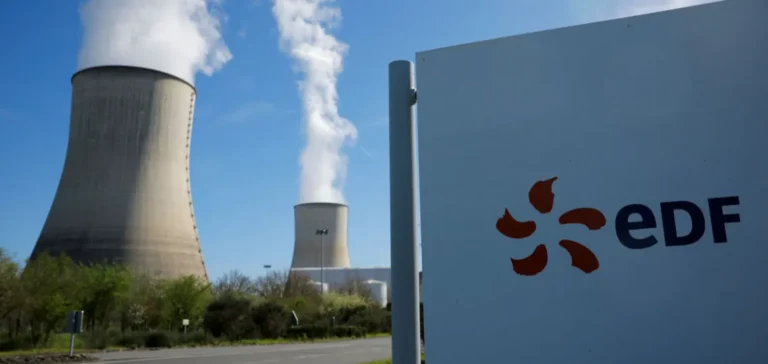The production costs of Électricité de France’s (EDF) nuclear fleet will remain contained over the coming years, according to data published by the French Energy Regulatory Commission (Commission de régulation de l’énergie, CRE). The updated assessment serves as a reference for the implementation of the new regulatory framework after the Arenh system, which will take effect from 1 January 2026.
A strategic reference cost for the State
CRE estimated the full cost of nuclear electricity at €60.3/MWh under 2026 economic conditions for the 2026-2028 period. This figure rises to €61.5/MWh in current terms. For the following period, between 2029 and 2031, the cost is projected at €63.4/MWh under 2026 conditions, equivalent to €68.4/MWh in current 2025 terms.
These figures form the basis of the Universal Nuclear Contribution (Versement nucléaire universel, VNU), which will allow the State to collect part of EDF’s revenues when they exceed set thresholds. The proceeds will then be redistributed to all consumers, both households and industrial users, in order to ensure price stability.
Persistent gaps with EDF’s estimates
The amounts advanced by the regulator remain well below those announced by the state-owned utility. EDF had assessed its production costs at €79.6/MWh for 2026-2028, and €81.5/MWh for 2029-2031. CRE specified that the gap partly results from a methodological adjustment, combined with corrective factors that mitigated the impact of inflation.
According to the president of CRE, the new figures remain “very close” to the evaluations published in 2023, showing relative stability in projections. This consistency facilitates the setting of thresholds beyond which EDF will be subject to progressive taxation of its nuclear revenues, with two levels: 50% in a first bracket, then 90% beyond a second threshold.
Towards a post-Arenh framework
The Arenh mechanism (Regulated Access to Historic Nuclear Electricity), in place until 31 December 2025, obliges EDF to sell part of its electricity at low prices to competitors. From 2026 onwards, the company will be able to market all of its production on wholesale markets. However, the future framework provides redistribution mechanisms to avoid sudden price increases for end users.
EDF’s fleet currently includes 57 reactors, among them the Flamanville EPR, commissioned in 2024. These facilities remain the backbone of the country’s electricity production, making transparency on their operating costs critical.






















